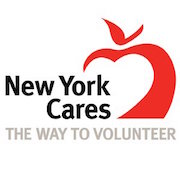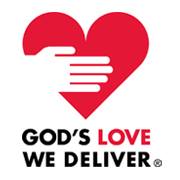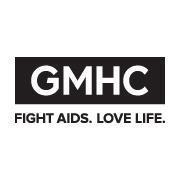People living with or affected by HIV/AIDS often decide they want to give back to the community. Some folks prefer to make a financial donation. Others, however, want to donate their time and skills — they’re interested in volunteering. But figuring out how, exactly, to do that can be daunting.
For tips on how to find the organization and task best suited to you, POZ spoke with representatives who work with volunteers: Natalie Zuckerman, director of volunteer and community partner relations at New York Cares, which mobilizes volunteers for a variety of programs and causes; Steven Marion, director of volunteer services at God’s Love We Deliver, which provides meals for New Yorkers living with HIV/AIDS and other illnesses; and Rhonda Harris, director of human resources and the Volunteer Center at the Gay Men’s Health Crisis (GMHC), an HIV/AIDS service and advocacy organization.
 |
Their insight can help you take the first steps to becoming a volunteer. All three emphasized that volunteers should be willing and open to work with and for a wide variety of people in a multitude of ways.
For volunteers to gain the most from their donated time, they need to feel connected to the cause they work for, which in turn allows the organization to gain the most from their being there. As Marion puts it, volunteers should “figure out what it is that the organization does that touches them in a personal way.” Zuckerman emphasizes that “volunteers should understand their own motivations for wanting to give back; some people are connected to a particular population or issue area, while others want to learn a new skill or meet new people.” The desire to volunteer and feel passionate about your work is central for a good experience on both ends.
Volunteers may be assigned to work with clients, staff or other volunteers, so an open attitude is crucial in working with people and for people of all backgrounds and personalities. Teamwork is central in many circumstances. “Being excited to work together, to give back and make an impact” is a crucial element Zuckerman looks for when placing volunteers for New York Cares.
Another important skill is good communication. Marion explains that volunteers at God’s Love do a tremendous amount of the meal preparation and delivery while a few staff members oversee them.
 |
Harris stresses the importance of “confidentiality and cultural sensitivity” for volunteers at the GMHC, which she describes as a “sex-positive” organization that seeks to “encourage conversation and dialogue.” Especially in environments that offer services like HIV and syphilis testing and counseling, it is important for volunteers to be empathetic and sensitive to what their clients may be going through.
Of course you can serve others regardless of your comfort level around topics like sexually transmitted infections. That’s another reason why volunteer placement is so important. GMHC has a “volunteer open house” to help determine where a new volunteer might best fit in the organization, considering their experiences and personality.
Don’t be worried if you lack technical skills — that won’t stop organizations from finding a use for you. But if you do have a particular skill set, or you want to develop one, let the group know. Many organizations will train volunteers for certain forms of volunteer work. For instance, a prevention specialist at GMHC teaches an “HIV-101” course to volunteers about how to prepare safer-sex kits. Volunteers learn what to put in the kits, what the items in the kit are and what each item does; in the process, they get general information about how they may help prevent HIV transmission through their work.
Regarding already acquired skills, Marion says that data-entry is very necessary for the operation of God’s Love, and while it is not always the most fun or social job, it is hugely helpful. What else is helpful at God’s Love? Chopping vegetables. It’s a necessary job, Marion added, that most people can do without training.
 |
Another factor to consider is time. Do you have a regular slot of time in your schedule each week or can you only serve for a short time as your schedule allows? Your availability can determine how the organization uses you as a volunteer. Some organizations, like GMHC, ask for a flexible, six-month commitment of regular time from volunteers. At God’s Love, volunteers sign up for scheduled cooking-preparation shifts. Volunteer commitment is critical for the organizations’ operations, as many organizations depend on volunteers to provide a tremendous amount of physical work.
Alternatively, each of these organizations has different tasks for one-time volunteers, or project-based volunteer assignments that can be completed over a short period. One example Harris gives is GMHC’s annual AIDS Walk: Nearly 2,000 volunteers put in time on preparatory tasks over roughly a three-month period, culminating in the walk where volunteers and staff raise money and awareness for HIV/AIDS relief. Marion at God’s Love describes how corporate groups provide work for significant chunks of time, such as in July when employees at different Michael Kors offices work in the kitchen. Each of the interviewed organizations saw seasonal volunteering trends, with increased interest around the November and December holidays, and a slowdown in August when many people take vacations.
Overall, each representative expressed tremendous gratitude for volunteers’ work, which relieves staff from spending time on certain tasks, leaving them with time to manage different clienteles’ specific needs.
Volunteers are vital to the success of these groups. But one of the biggest challenges potential volunteers face is taking that first step and contacting an organization to ask how they can help. Once you do that, folks like Harris, Marion and Zuckerman will help you get the most out of the experience.







1 Comment
1 Comment